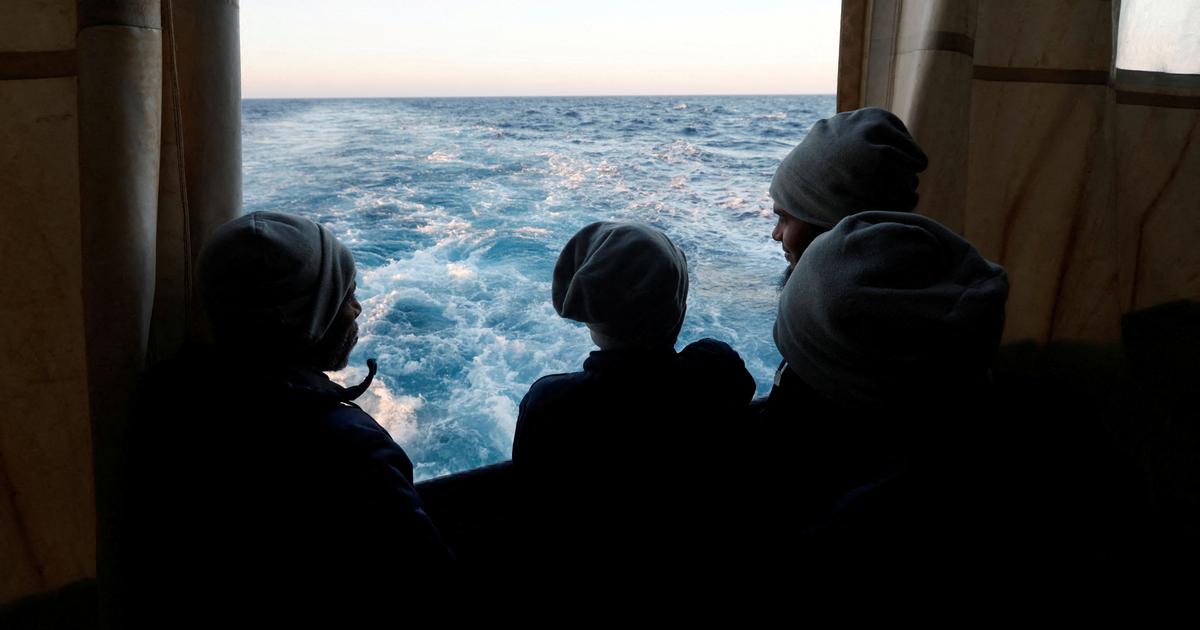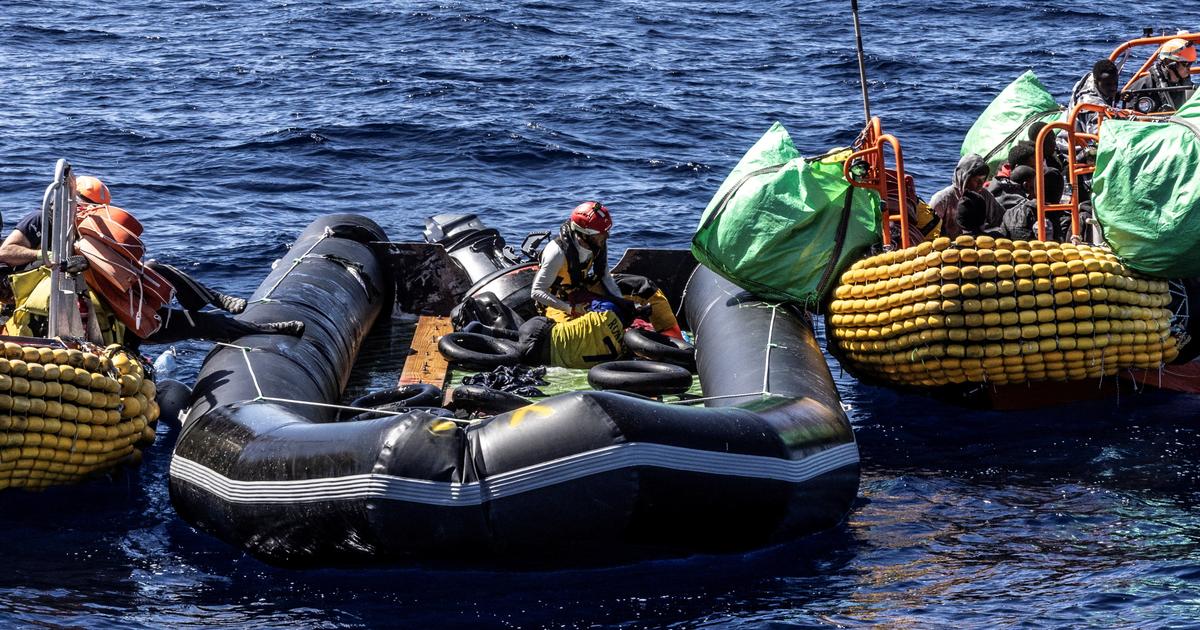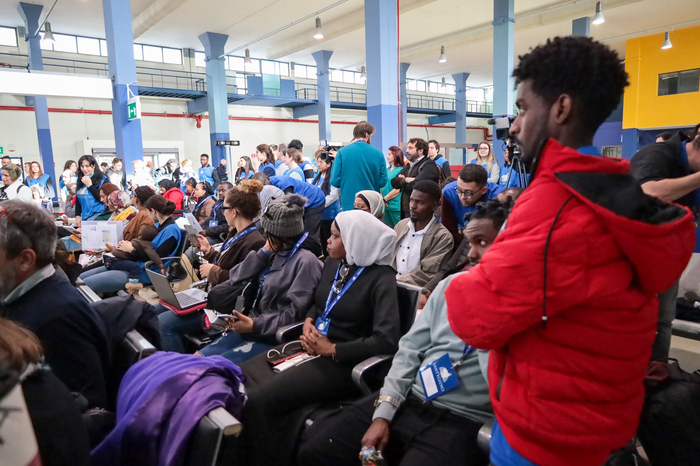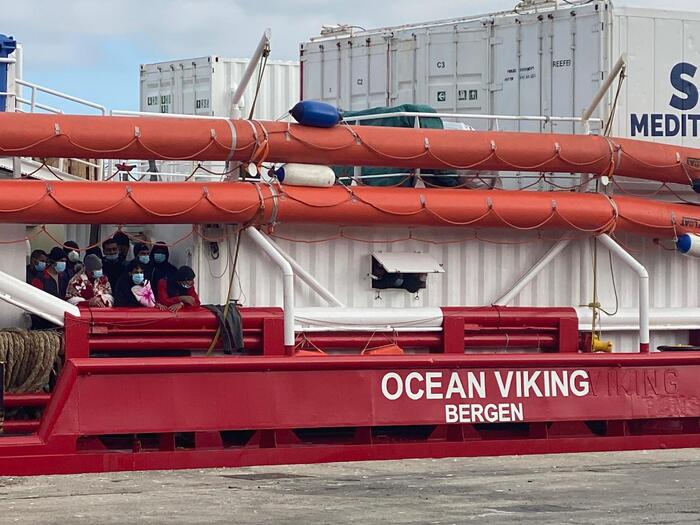Fayez Sarraj is actually an architect. But the 59-year-old has not planned houses for a long time. Sarraj has been Prime Minister of Libya since 2016. He is waging the United Nations government in Tripoli - and a war.
His opponent is Khalifa Haftar, an aged warlord who calls himself a field marshal, was still trained in the Soviet Union and returned from exile in the United States in 2011 after the fall of long-term ruler Muammar al-Gaddafi to take power in the North African country take. At least that was his plan.
Now, after years of civil war, the 76-year-old wants to finally take the capital Tripoli and overthrow the government of Sarraj with his "Libyan National Army" (LNA). According to their own statements, the group took key positions around Tripoli over the weekend.
The Gulf States are fighting each other in North Africa
But the civil war in Libya has long been more than just a struggle between Libyans for the future of their homeland. Three wars are waged in the country at once. Sarraj and Haftar have powerful supporters in the Arab world. The Gulf States in particular are fueling the conflict with dollars and entire drone fleets:
- The internationally recognized government of Sarraj and the militias associated with it are protected by the emirate of Qatar .
- The United Arab Emirates (UAE) support Haftar's army as well as Egypt, Jordan and Saudi Arabia .
These three countries have been blocking Qatar politically and economically for around two and a half years. The main reason: Since the Arab Spring 2011, the emirate has been trying to establish itself as a medium-sized power in the region using a variety of means, something which the powerful rulers in Abu Dhabi and Riyadh particularly dislike.
"For Erdogan, the conflict is an opportunity to reposition itself"
Qatar is supported in this unequal struggle by Turkey . President Recep Tayyip Erdogan is one of the big losers of the Arab Spring:
- As a result of the upheavals and upheavals, he dreamed of positioning Turkey as an indispensable regional power.
- That is why his government in the Middle East supported Islamist groups, many of whom are close to the Egyptian Muslim Brotherhood.
- After the fall of long-term ruler Hosni Mubarak, it ruled briefly on the Nile until the military ended this experiment in 2014.
- Since then, Abdel Fattah al-Sisi has been the strong man in Egypt.
In Libya, Turkey is also on the side of Qatar and supports the Sarraj government. Ankara is even considering sending its own troops or Arab militias to North Africa who have been fighting in Syria so far. Erdogan has now made an application to send troops to the Turkish Parliament. "For Erdogan, the Libya conflict is an opportunity to reposition itself," says Daniel Gerlach, Middle East expert and editor-in-chief of the trade magazine "Zenith".
"War was not an ultima ratio, but an instrument of foreign policy power"
At the weekend, the first videos appeared south of Tripoli. It shows militia officers who speak Syrian dialect and claim that they have taken a base from Haftar's troops. The authenticity of this video has so far not been verified beyond any doubt.
Like Turkey, Russia is also active in Syria and Libya. "For Erdogan and Putin, war is not the ultima ratio, but an instrument of foreign policy power," says Gerlach. "If you see a vacuum, try to fill it so that you can have a say in the negotiations that follow."
How many Russian mercenaries fight alongside Warlord Haftar in Libya is controversial. The Washington Post recently reported more than 1,000 men under arms. The LNA is also said to receive military aid from Moscow.
Italy, France and the United States torpedo the West's uniform Libya policy
The European Union is concerned that Russia and Turkey are now active warring parties not only in Syria, but also in Libya and thus have a decisive influence on the two central migration routes. So far, however, the international community has not had a coherent plan. There are very different interests among the EU Member States:
- Italy, for example, Libya's old colonial power, supports the Sarraj government. The Italian army operates, among other things, a field hospital at Misrata airport. Prime Minister Guiseppe Conte proposed setting up a no-fly zone over the weekend. The government in Rome primarily has economic interests in Libya. With a market share of 45 percent, the energy group Eni is the largest foreign oil and gas producer in the civil war country.
- Germany is meanwhile trying to mediate between the conflicting parties. The federal government wants to prevent a second Syria from developing in Libya and is planning an international conference.
- France, on the other hand, relies on Haftar. "The government in Paris has apparently worked with Haftar's military in the past years in the field of anti-terrorism in the Sahel region," Gerlach says.
The government in Paris does not actively support the warlord, but so far there has been no public distancing. The United States is also not clearly positioned, even though it is waging an anti-terrorist war against the terrorist militia "Islamic State" in Libya.
The United States officially supported the UN-recognized government of Prime Minister Sarraj. Last April, however, President Donald Trump phoned Haftar - and praised him for the "important role" that he and his men played in securing Libyan oil reserves, among other things. In the same month, Haftar launched his offensive on Tripoli, which he now wants to end victoriously.









